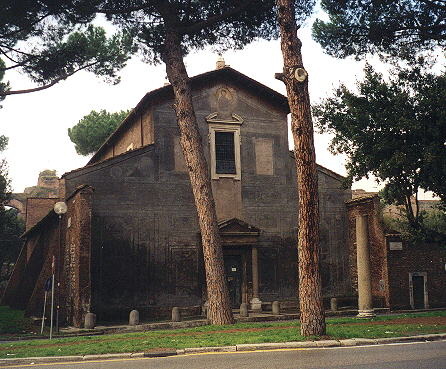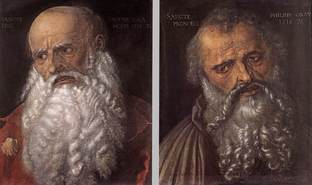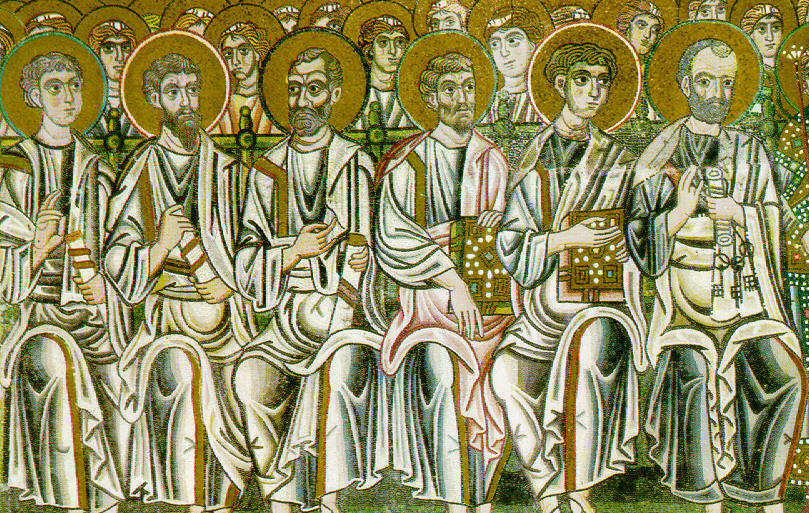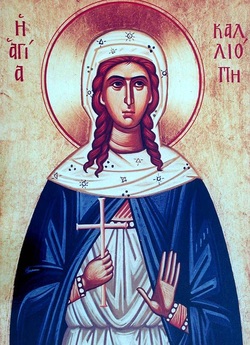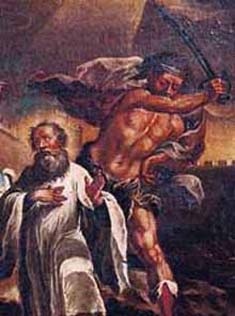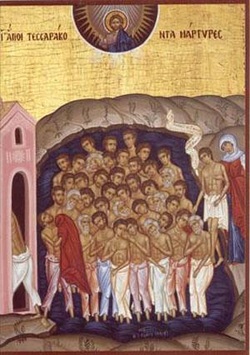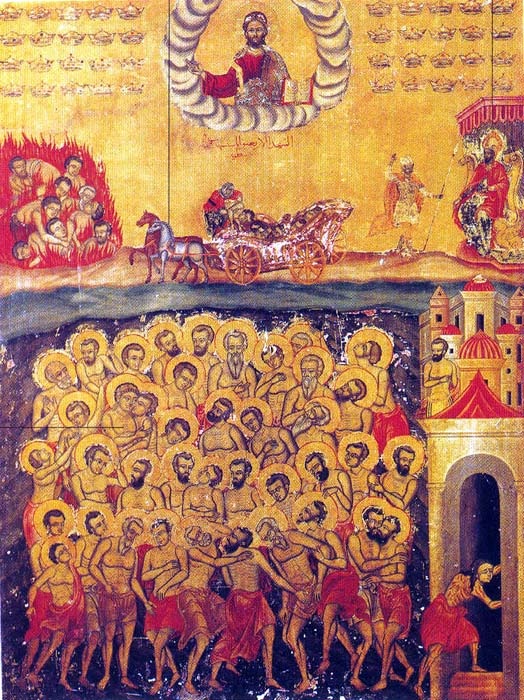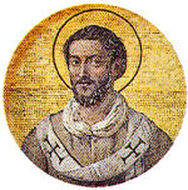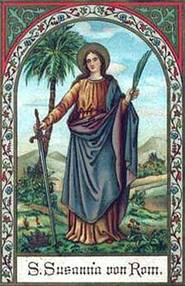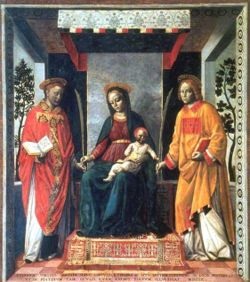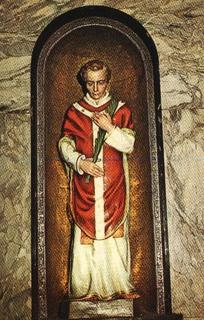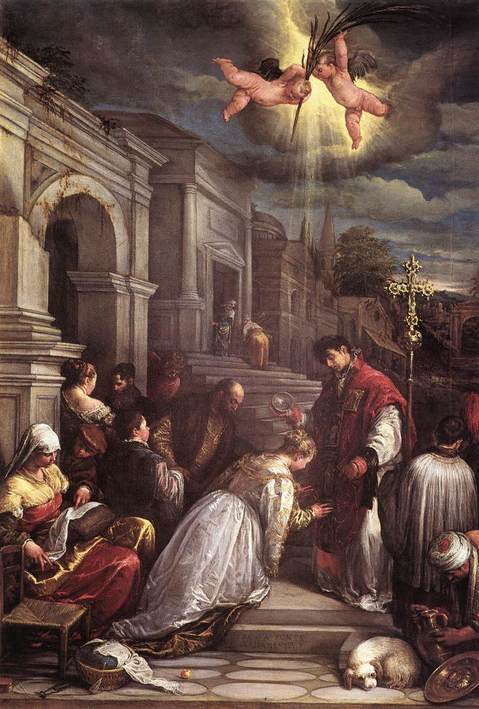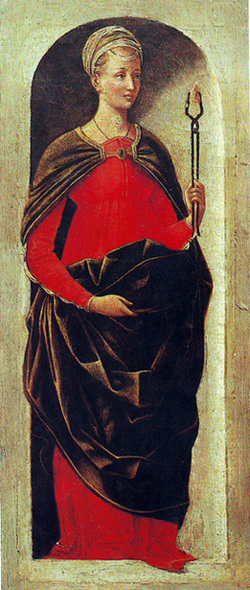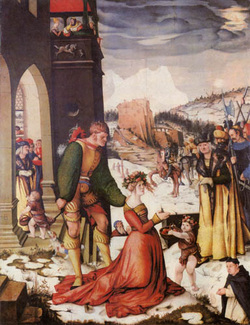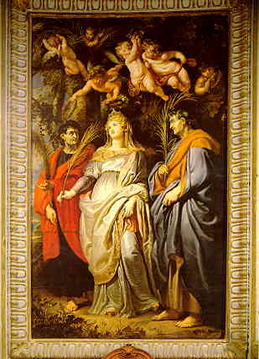 St. Domitilla with Ss. Nereus and Achilleus
St. Domitilla with Ss. Nereus and Achilleus The Virgin Flavia Domitilla was a Roman, the niece of the Emperors Titus and Domitian, and was veiled by the blessed Pope Clement. Aurelian, son of the Consul Titus Aurelius, to whom she was betrothed, accused her of being a Christian, and the Emperor Domitian banished her into the island of Ponza, where she long suffered and testified in prison. At length she was taken to Terracina, where she again confessed Christ, and as she seemed ever to grow firmer, the judge, under the Emperor Trajan, caused her chamber to be set on fire, and there Domitilla, with her foster-sisters the maidens Theodora and Euphrosyna, finished the race of faith by grasping the crown of glory, on the 7th day of May.
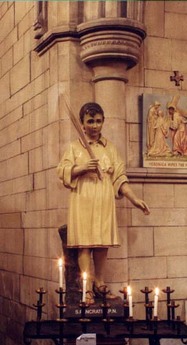 St. Pancras
St. Pancras 